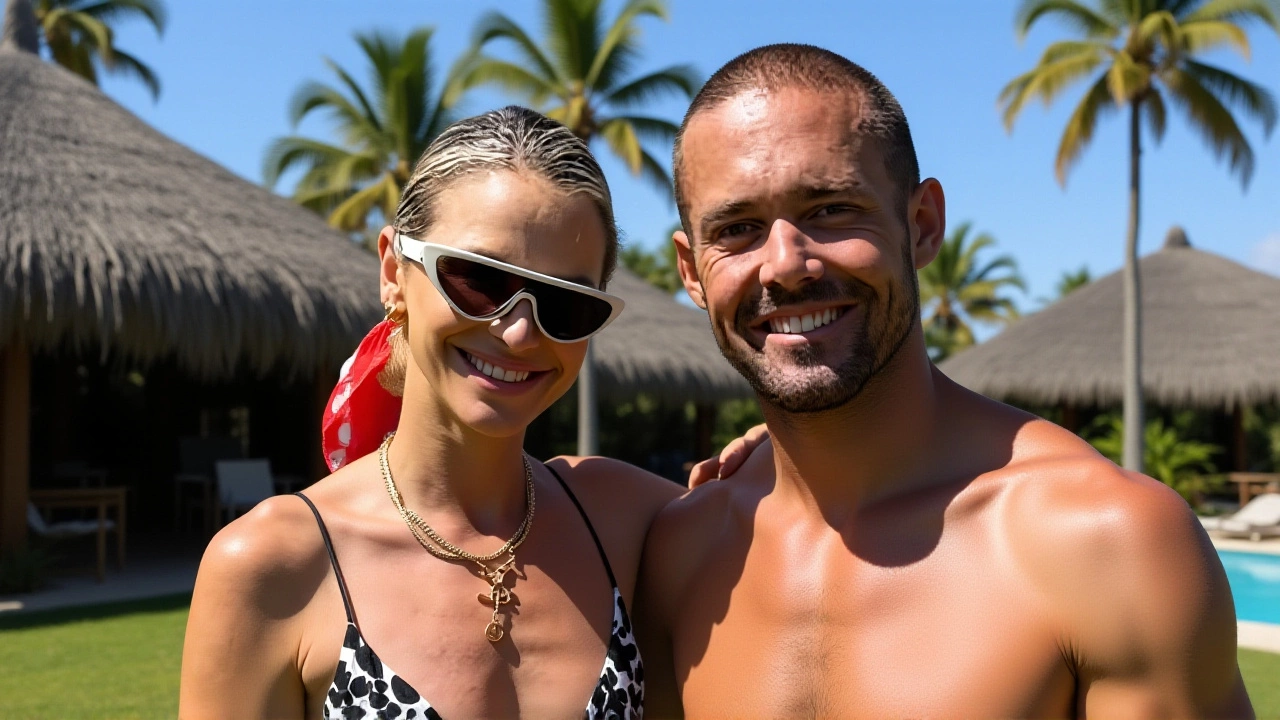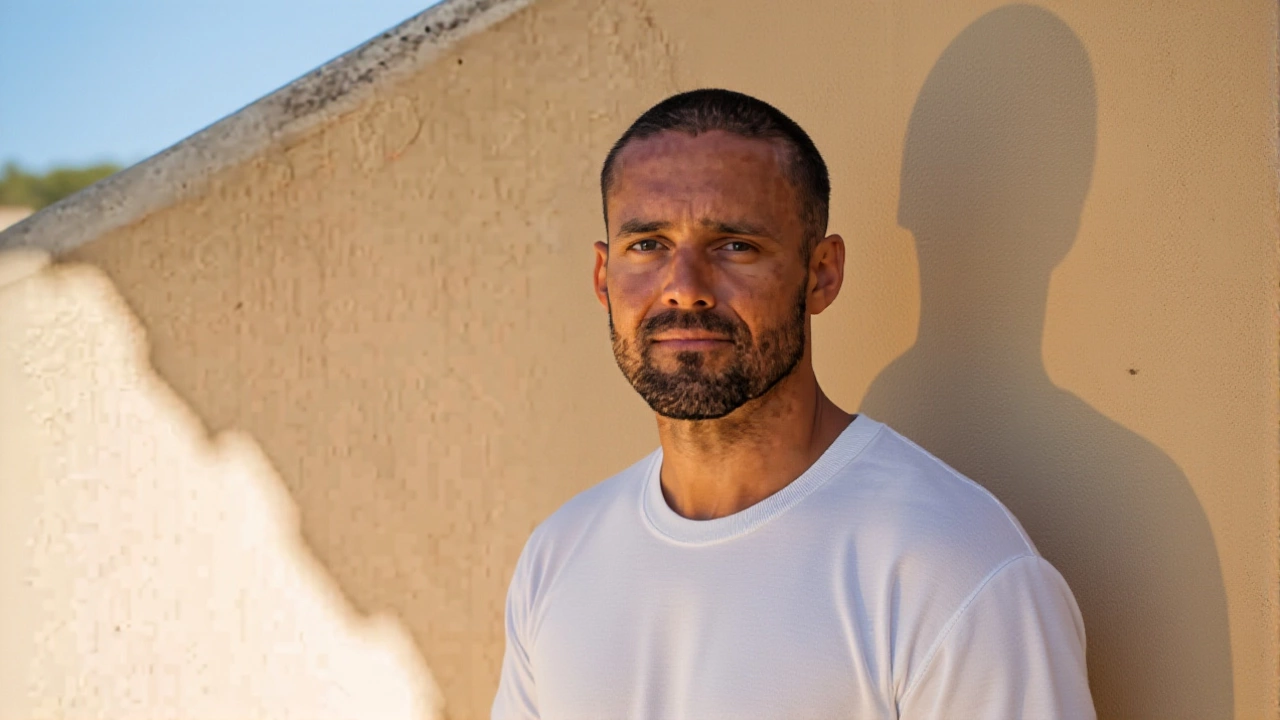Spencer Matthews Tests If He’s a Psychopath in Groundbreaking Channel 4 Documentary

When Spencer Matthews told Fearne Cotton on her podcast, "I lack empathy!"—his voice steady, almost detached—it wasn’t just a confession. It was the opening line of a public experiment unlike anything British television has seen before. The 36-year-old former Made in Chelsea star and current co-host of the Spencer, Vogue & The Baby podcast is now the subject of a one-off Channel 4 documentary, Spencer Matthews to Discover If He’s a Psychopath, a project the broadcaster calls "one of the most extreme psychological experiments ever undertaken on British TV." And it’s not just about curiosity. It’s about survival—of his marriage, his role as a father to three children, and his hard-won sobriety.
From Reality TV Villain to Psychological Case Study
Matthews first entered British living rooms in 2011 as the brooding, unpredictable heart of Made in Chelsea. Edited as the "problem child," he was the one who missed birthdays, broke promises, and vanished without explanation. Back then, viewers wrote him off as just another reality TV drama queen. But now, he’s asking the world: what if I wasn’t just selfish? What if I’m wired differently? The shift began in 2021, when he completed 30 marathons in 30 days—not for clout, but as a lifeline. "I was at rock bottom," he told Cotton in the November 17, 2025, episode. "I had whisky hidden under the stairs. I was lying to everyone I loved." That physical endurance was his first real attempt to rebuild. But the emotional work? That’s harder. And that’s where the documentary steps in.The Science Behind the Self-Questioning
Channel 4 has assembled a team of leading UK psychologists and neuroscientists to subject Matthews to a battery of tests: fMRI scans to measure brain activity during emotional stimuli, psychometric assessments like the Hare Psychopathy Checklist, and behavioral experiments designed to measure empathy gaps. The goal? Not to label him, but to understand. "We’re not looking for a serial killer," says one anonymous researcher involved in the project. "We’re looking at how traits like fearlessness, emotional detachment, and high focus can be channeled—sometimes productively—in high-stakes environments. Think surgeons. CEOs. Elite athletes. Are they psychopaths? Or just people who’ve learned to compartmentalize?" Matthews’ wife, Vogue Williams, an Irish presenter and podcaster from Dublin, has been candid about their relationship’s strain. "There are moments," she told producers, "when he’s physically present but emotionally absent. Like he’s watching life through glass." Their daughter, the youngest of their three children, is a focal point. "I have this special bond with her," Matthews says in the podcast. "But I don’t know if I feel it the way I’m supposed to."
Breaking the Serial Killer Myth
The documentary deliberately dismantles Hollywood’s toxic stereotype. Matthews admits he spent months binge-watching true crime documentaries—"a serial killer doc spiral," he calls it—trying to map his own behavior onto criminals. "I thought, if I’m like them, then I’m broken. But what if I’m just… different?" That’s the crux. Research from the University of Oxford and King’s College London shows that up to 1% of the population may meet clinical criteria for psychopathy, yet the vast majority never commit crimes. They’re lawyers, entrepreneurs, even teachers. Their traits—charm, low anxiety, emotional detachment—can be assets in high-pressure fields. The problem isn’t the traits. It’s the lack of awareness. Matthews’ journey forces viewers to confront their own biases. Can someone who lies to protect their ego still be a good father? Can someone who doesn’t cry at funerals still love deeply? The documentary doesn’t answer these questions outright. It just holds them up, like a mirror.Why This Matters Beyond One Man’s Story
This isn’t just about Spencer Matthews. It’s about a culture that equates emotional expressiveness with moral virtue—and silence with coldness. We shame men for not crying. We praise CEOs for being "ruthless." We call women "dramatic" for feeling too much. Meanwhile, the language of mental health remains stuck in binary terms: normal or broken. Channel 4’s move to air this documentary—without a confirmed broadcast date, but confirmed in production—is a quiet revolution. It asks: What if psychopathy isn’t a diagnosis, but a spectrum? What if empathy isn’t binary, but a muscle that can atrophy—or be rebuilt? Matthews’ recovery isn’t linear. He still struggles. He still hides things. But now, he’s asking for help—not just from therapists, but from the public. "I want to know if I can change," he says. "And if I can’t… then I need to know how to live with it."
What Comes Next?
The documentary’s release could ignite a national conversation in the United Kingdom about personality disorders, emotional literacy, and the stigma around men’s mental health. Advocacy groups like Mind and CALM have already signaled interest in partnering with Channel 4 for post-broadcast resources. Schools may begin incorporating emotional intelligence modules that don’t just teach children to "feel more," but to understand why some people feel differently. And Matthews? He says he’s done running. "I used to think being unemotional made me strong," he told Cotton. "Now I know it just made me lonely."Frequently Asked Questions
Is Spencer Matthews officially diagnosed as a psychopath?
No. The documentary is an exploratory process, not a clinical diagnosis. Matthews is undergoing psychological assessments with leading UK experts, but no formal diagnosis has been confirmed or announced. The goal is to examine whether his traits align with psychopathy on a spectrum—not to label him.
What is a "good psychopath"?
A "good psychopath" is a term used by some researchers to describe individuals who display psychopathic traits—like fearlessness, charm, and emotional detachment—but channel them into high-achieving, non-criminal roles. Think surgeons who remain calm under pressure or CEOs who make tough decisions without emotional hesitation. These traits can be functional, even advantageous, in certain environments.
How does this relate to Matthews’ addiction history?
Matthews links his emotional detachment to his addiction. He says he used alcohol to numb feelings of disconnection and guilt after letting people down. His 30-marathons-in-30-days challenge in 2021 was a physical attempt to regain control, but the documentary suggests emotional awareness is the next, harder step in his recovery.
Why is Channel 4 airing this now?
With rising public discourse on mental health, masculinity, and emotional intelligence, Channel 4 sees this as a timely intervention. The documentary challenges outdated stereotypes of psychopathy as inherently violent, aiming to foster nuanced understanding rather than fear. It’s part of a broader push to humanize psychological conditions on mainstream TV.
Could this change how we talk about empathy in society?
Potentially. Matthews’ story forces us to question whether empathy is something everyone experiences the same way—or if it’s a skill that varies across individuals. If people with low empathy can still be loving parents and productive members of society, it undermines the moral judgment often attached to emotional expression. This could reshape education, workplace culture, and even parenting norms.
When will the documentary air?
Channel 4 has confirmed the documentary is in production but has not announced a broadcast date. Given the sensitivity of the subject and the need for expert review, it’s likely to air in late 2025 or early 2026, possibly around Mental Health Awareness Month in May.
